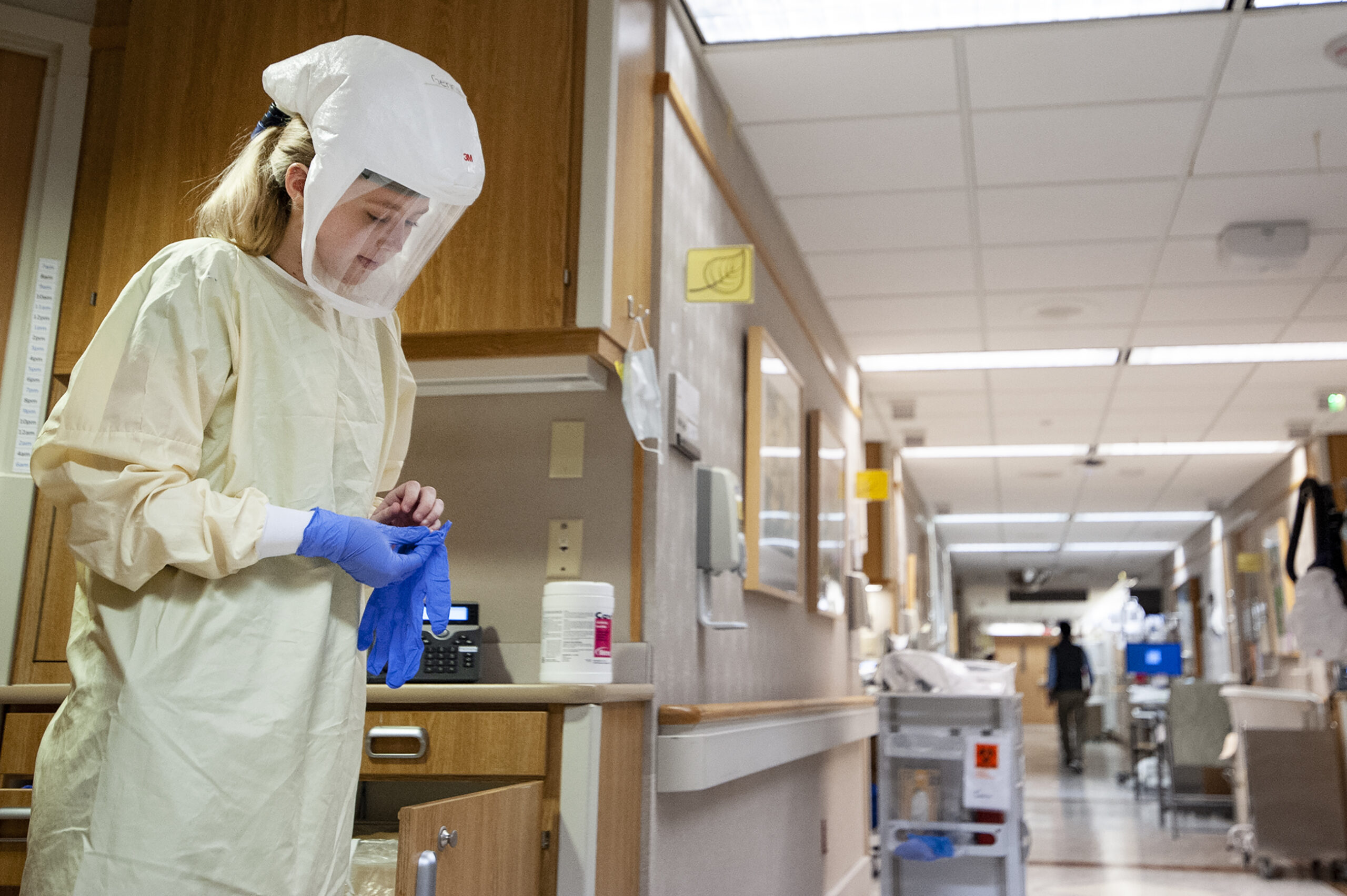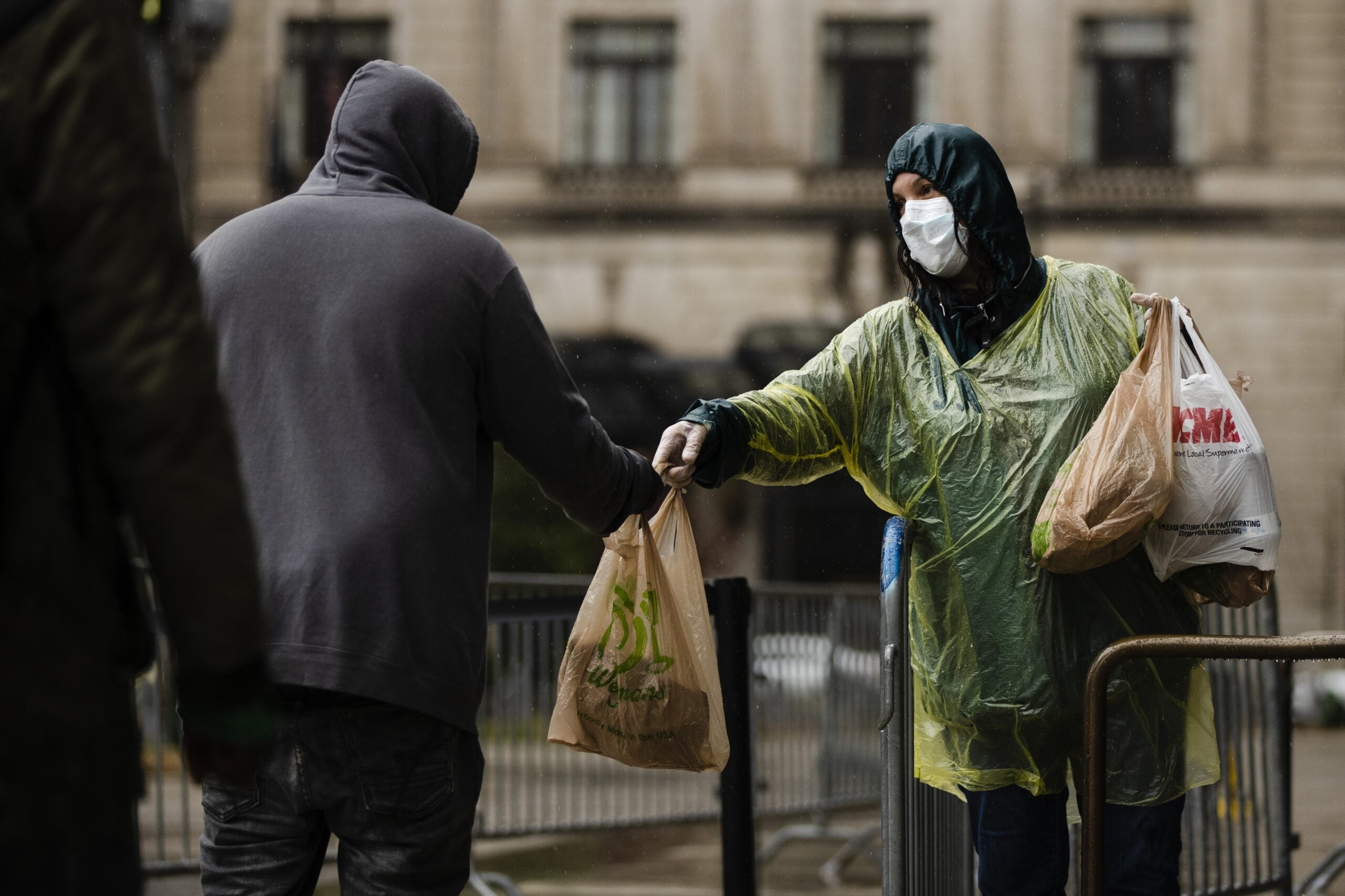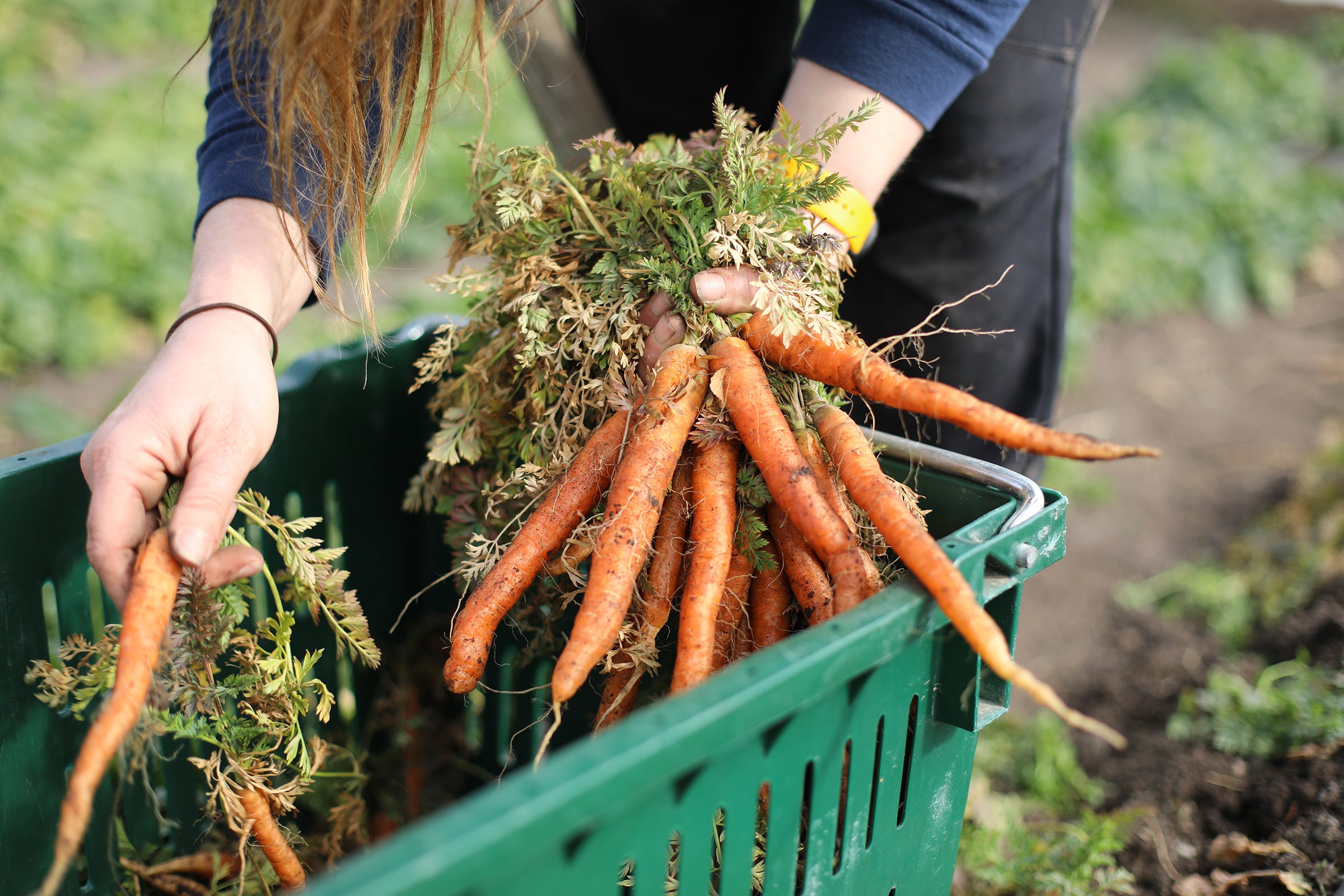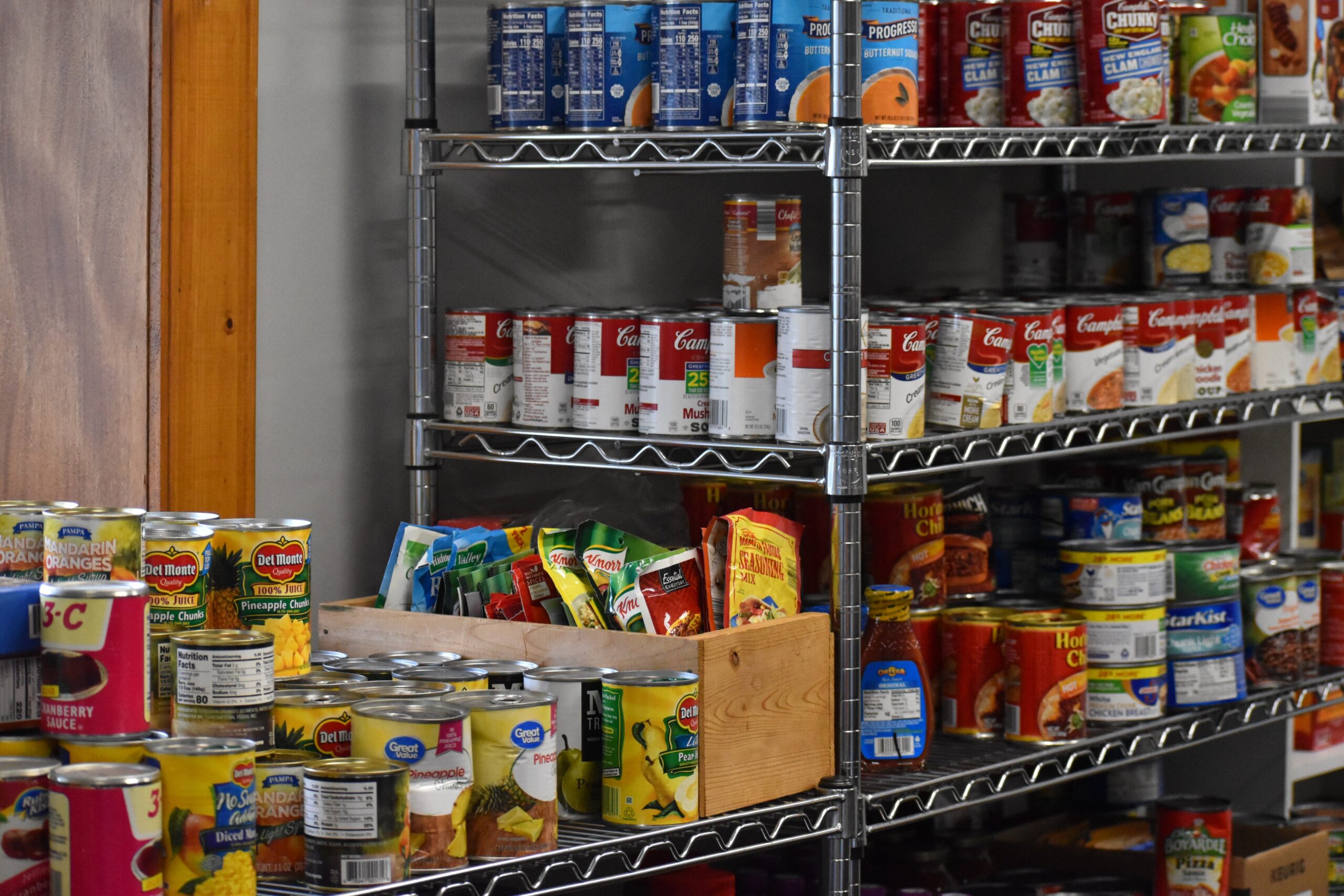Some state and federal COVID-19 relief programs are coming to an end in Wisconsin, and food prices are rising across the United States. Food pantries in the state anticipate an increase in need.
Feeding America projects that this year, 10 percent of Wisconsinites will experience food insecurity, reports the Milwaukee Journal Sentinel. Children are especially affected; Feeding America estimates food insecurity among children will reach about 16 percent in 2021.
“A misconception is that food pantries are just for someone who is destitute, and that’s just not how we see things at all,” said Julie Hoover, executive director of Family Sharing of Ozaukee County. “We have a very large population of people who are working, and sometimes they have more than one job, or more than one person in the household is working but they’re still struggling to meet the cost of living.”
Stay informed on the latest news
Sign up for WPR’s email newsletter.
Obstacles such as transportation and accessibility make it hard to address food insecurity in rural Wisconsin, where those percentages are a bit higher — 11 percent overall and 19 percent for children.
“I think there is a part of the population that we do miss because they aren’t able to get here. We’ve tried to troubleshoot that as best we can,” Rachael Bolen, director of Antigo Area Community Food Pantry, told the Wausau Daily Herald.
Ways to help
- Tosa Cares: tosacares.org
- Family Sharing of Ozaukee County: familysharingozaukee.org
- Waukesha County Food Pantry: https:waukeshafoodpantry.org
- USA TODAY NETWORK-Wisconsin partnership with Feeding America Eastern Wisconsin: Stock the Shelves campaign
- Anytime Fitness and Basecamp Fitness locations in the southern part of the state are collecting donations for Second Harvest Foodbank of Southern Wisconsin.
Wisconsin DHS: COVID-19 Weekly Recap
The seven-day average for new COVID-19 cases in Wisconsin is 1,852 as of Friday. The Wisconsin Department of Health Services has confirmed 8,483 total deaths from the disease.
In Wisconsin, 55 percent of people are fully vaccinated — including 83.9 percent of people age 65 and older and 44.7 percent of children age 12-15.
40 percent of health department leaders have left their positions since March 2020
Factors such as COVID-19 outbreaks, various mandates and attitudes toward vaccination have driven many health care workers to their limits.
Almost 40 percent of top officials with local health departments in Wisconsin have left their positions since the start of the pandemic last March, reports the Green Bay Press-Gazette.
That’s more than double the amount of leaders who left positions as of the end of 2020, according to data obtained by USA TODAY NETWORK-Wisconsin.
And it follows a national trend — more than 300 public health officials have resigned or retired throughout the pandemic, based on an investigation by Kaiser Health News and The Associated Press.

Afghans at Fort McCoy struggle to get dental care
Since arriving at Fort McCoy in August, roughly 13,000 Afghan evacuees have gone without access to a dentist, according to a report from the Wisconsin State Journal.
While a single dentist arrived within the last week, getting an appointment could take weeks or longer.
The Wisconsin State Journal spoke with four Afghans who’ve said they couldn’t get treatment, even when dealing with serious tooth decay.
After clothing and food shortages, the lack of dental care is another example in a pattern of staff at Fort McCoy being “overwhelmed” by the number of evacuees, said U.S. Army combat veteran Ilene Henderson, who has Afghan friends on base.
“Their teeth are so rotten they can’t eat,” Henderson told the State Journal. “This is inhumane treatment.”
Elk spotted in southern Wisconsin
Efforts to bring elk back to Wisconsin began in 2015, after the animal was driven out of the state during the late 1800s. The Wisconsin Department of Natural Resources said some elk have been spotted recently in southern Wisconsin, reports Channel 3000.
The DNR asks for people to view the elk from a safe distance, and for deer hunters to be cautious of the elk.
Chequamegon-Nicolet National Forest suffers from lack of funding
Visits to Wisconsin campgrounds have increased throughout the past year and some months, as more people have taken to the outdoors during the pandemic.
But several campsites at the Chequamegon-Nicolet National Forest closed in 2019, and weren’t able to be saved by an uptick in visitors, reports the Journal Sentinel.
Behind the closure is a broader problem, said Greg Krueger: a lack of funding for the forest.
“I think a lot people in Wisconsin aren’t aware of what’s going on here,” he said. “The forest doesn’t receive the funding it needs.”
In 2002, the Chequamegon-Nicolet National Forest received $500 million from Recreation, Heritage, and Wilderness funds; that dollar amount shrunk by half in 2019.
Kreuger is from Eagle River, right near the forest. He said the land is important because there are limited camping sites around the area, there’s a deep history there, and the campsites attract others to visit, which boosts the region’s economy.
“If I could wish anything, it would be that the national forest gets the funding that it needs to maintain their recreation system and not need to scale it back in this way,” Kreuger said.
Jury selection for Kyle Rittenhouse trial begins Monday
Last August, Kyle Rittenhouse, who was 17 at the time, shot three protesters in Kenosha — two of whom were killed. The protests followed the police shooting of Jacob Blake; he was shot seven times and left paralyzed by former Kenosha officer Rusten Sheskey.
Charges against Rittenhouse include homicide and recklessly endangering the safety of others, as well as one misdemeanor count of possession of a dangerous weapon by a minor. He’s pleaded not guilty to all charges, arguing self-defense.
Jury selection in the trial for the state’s case against Rittenhouse begins Monday.
The trial has already received national attention, as Judge Bruce Schroeder ruled the prosecution cannot refer to those shot by Rittenhouse as “victims,” but rather “rioters, looters and arsonists.”
From WPR’s Corrinne Hess: “Judge Schroeder has repeatedly said he plans to treat this trial like any other homicide case. But it’s not a normal case. It will determine whether a teenager was a defender of law and order during violent unrest, or a vigilante responsible for needless deaths.”
Wisconsin Public Radio, © Copyright 2025, Board of Regents of the University of Wisconsin System and Wisconsin Educational Communications Board.





